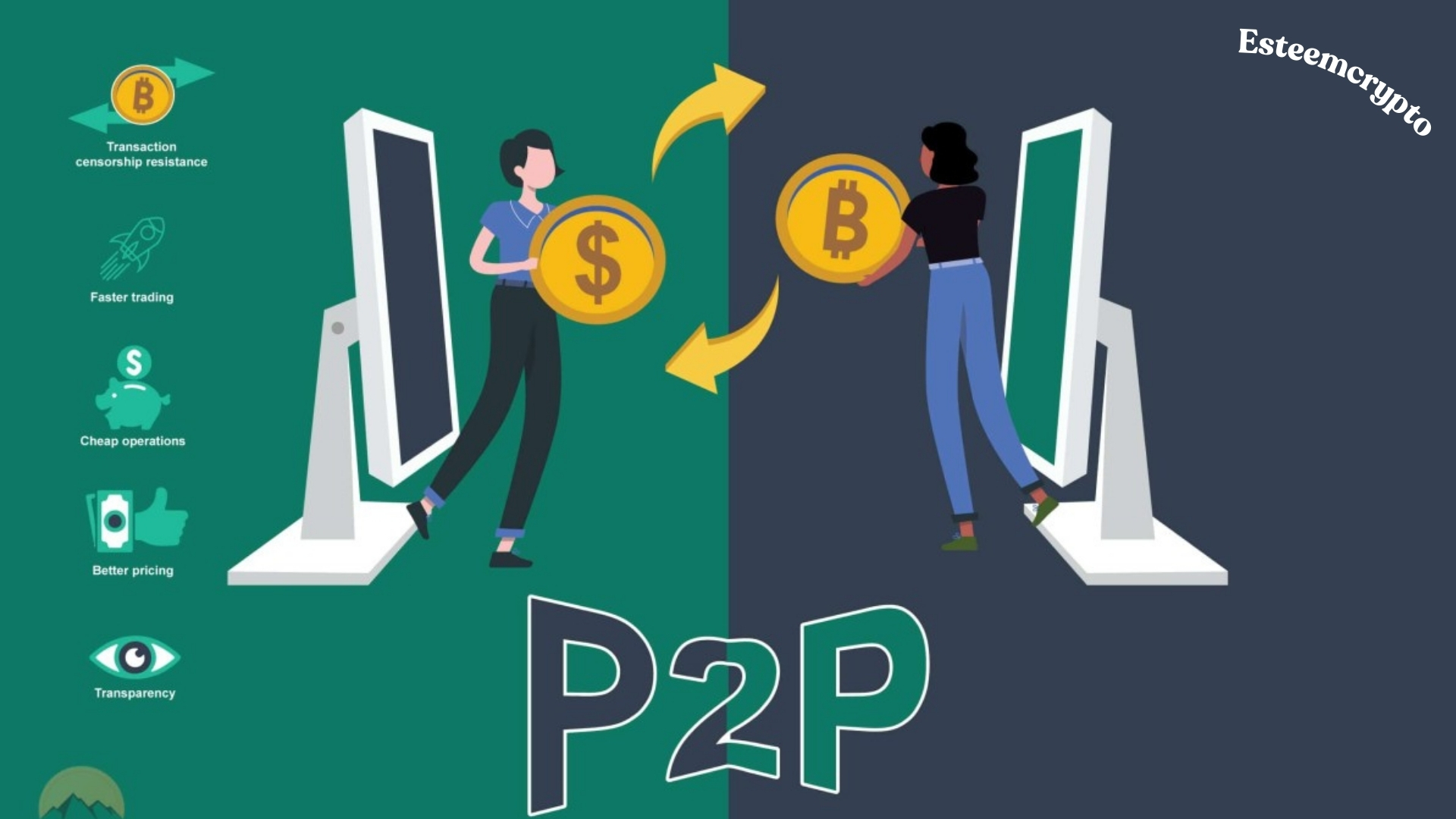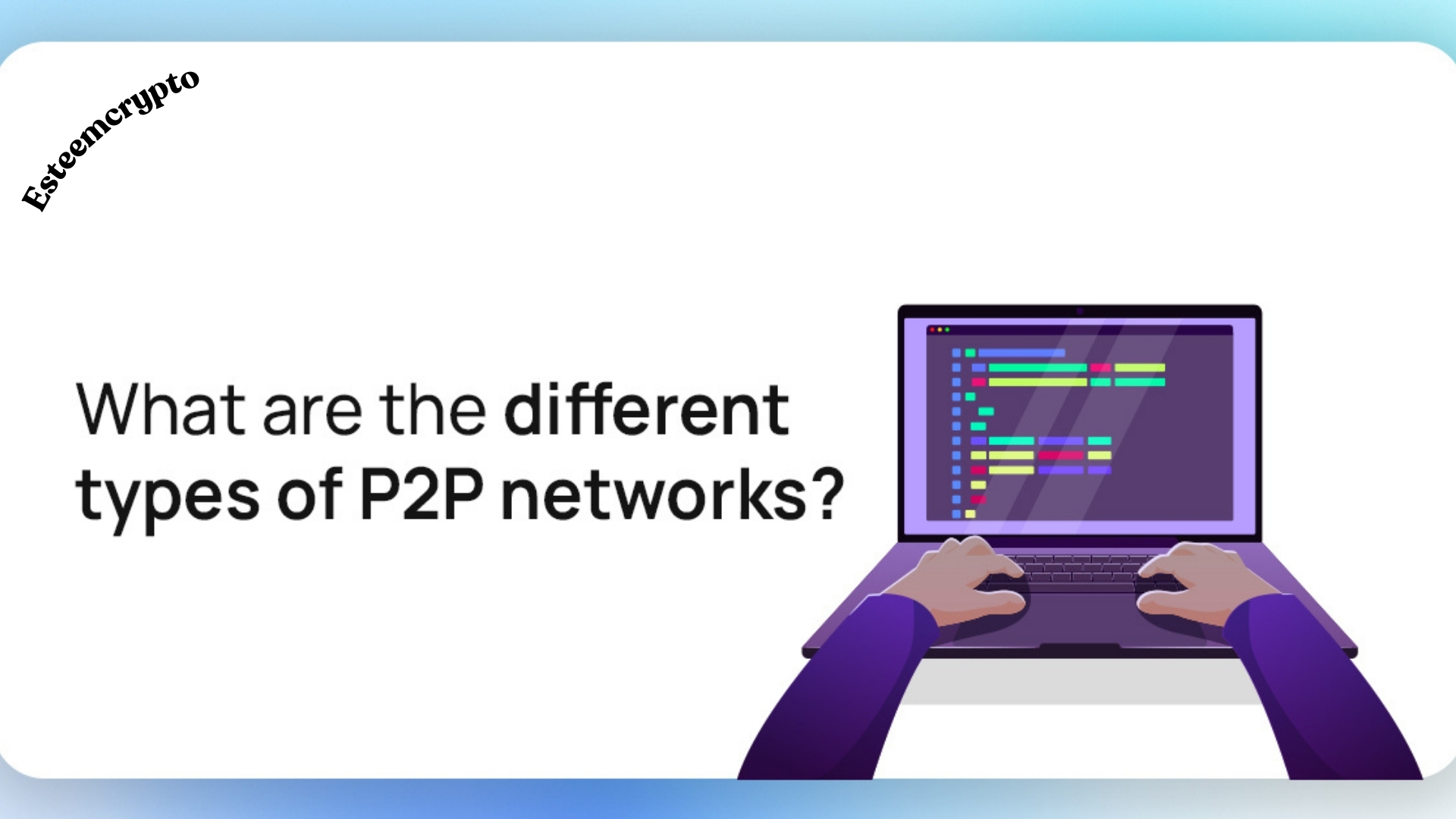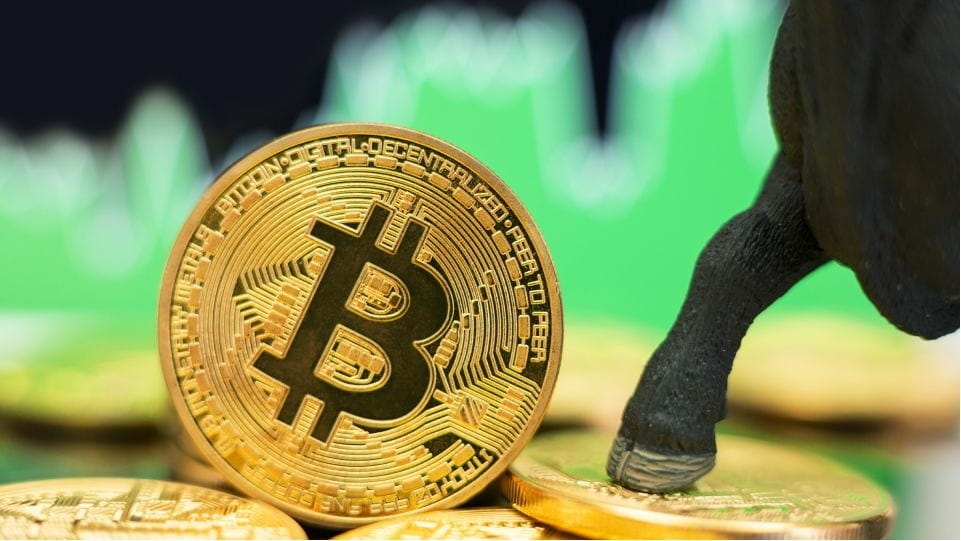P2P Trading—How Does it Work in Peer-to-peer Crypto Exchanges?

P2P Trading: One way cryptocurrency traders can trade with each other is through peer-to-peer (P2P) trading, eliminating the need for a middleman. In contrast to more conventional Bitcoin BTC $62,200 exchanges, which sometimes have stringent rules and demand authentication from users before they can use the platform, P2P trading platforms are generally considerably more lenient.
Instead of utilizing an automated engine to carry out your transactions, P2P trading allows you to choose your favorite offer and deal directly with a counterparty. That gives you greater leeway to save money while still getting the rate and payment method that works best for you. You can also better protect your privacy since you interact directly with a counterparty. For these reasons, users seeking a more direct approach to exchanging bitcoins find P2P trading interesting.
How does P2P Crypto Trading Work?
P2P trading platforms pair buyers and sellers to facilitate transactions. The network usually takes a tiny cut of every trade and requires users to keep their money in a digital wallet that the platform controls. People often equate P2P exchanges to markets such as Facebook Marketplace or Craigslist because they connect buyers and sellers of cryptocurrency. Crypto ads can usually be viewed or made by both buyers and sellers.
Most peer-to-peer (P2P) transactions employ a rating or feedback system to ensure the safety of all parties involved. Social media isn’t a safe place to transact, so you can’t find someone there who wants to buy Bitcoin and can’t sell it either.
Building trust on these sites is difficult since Facebook Marketplace and Twitter are not P2P platforms. Even after receiving the Bitcoin, there is no guarantee that the buyer will pay for it. You can see how others rate them on a peer-to-peer platform before you do business with them.
Types of P2P Networks

To better understand how P2P networks work, let’s take a quick look at the types of P2P networks. Outside of crypto trading P2P platforms, there are a variety of different P2P networks available, each with its unique features and benefits:
File-sharing
One example of a popular P2P network is a file-sharing network. People can upload and share media files like movies, songs, and books on these sites. Some common examples include file-sharing websites that allow users to connect and transfer files directly from their computers. There are several legal uses for file-sharing P2P networks, even though they are being exploited to download copyrighted information.
Telephony or VoIP
Without a centralized server or telephone provider, peer-to-peer (P2P) telephony network users can connect and have phone conversations. VoIP, or Voice over Internet Protocol, is another peer-to-peer telephony network that enables users to make calls and offers services like instant messaging and video conferencing.
Media streaming
Many popular streaming services rely on P2P technology to make their services work. For example, YouTube uses P2P streaming to deliver its content to users. Several other media services use the same method.
Pros and Cons of P2P Crypto Trading
Advantages
There are many advantages to using P2P crypto trading platforms, including:
Multiple payment methods
Since they only link buyers and sellers, P2P crypto trading platforms can offer many various payment options. Credit cards, PayPal, and other conventional payment methods are all part of this, as are digital currencies such as Bitcoin, Ethereum (ETH) ($2,916), and Litecoin (LTC) ($78.81).
Secure transactions
Encryption and two-factor authentication are standard security measures used by P2P trading platforms to safeguard transactions. Because of this, people using these networks can be assured that their money is secure.
Offers a global marketplace for buying and selling to users worldwide
The global nature of P2P crypto trading allows users to work with anyone, regardless of location. This opens possibilities, allowing you to trade in any currency or asset.
No restrictions apply, even in countries with strict crypto trading regulations.
Because P2P crypto trading platforms don’t have a central authority, governments with strict crypto laws can’t shut them down. This includes regulations specific to certain countries that may restrict how much cryptocurrency you can buy or sell.
Community and customer support
A big community of users who talk about cryptocurrencies, industry news, and trends is present on many P2P crypto trading platforms. You can receive helpful tips and information about the performance of various coins, which might impact your investment choices for the better.
Allows you to customize your offers with ad posting to attract sellers
Marketplaces are a common feature of P2P systems where users can post ads for goods and services. Plus, you may personalize your offer with various features like discounts and payment arrangements on many of these networks. With these personalization choices, you can trade bitcoins more freely than on controlled exchanges.
No trading fees or commissions
Because P2P trading platforms connect sellers directly with buyers, they don’t charge any transaction fees or commissions. This allows you to buy and sell currencies without worrying about extra costs impacting your bottom line.
Great transaction speed
Transaction speeds in P2P crypto trading systems are technique-dependent. For instance, when you pay with a credit card, your transaction is handled immediately. Bank transfers, on the other hand, could take several days. Nevertheless, the transaction speed is far faster than centralized exchanges.
Flexible trade orders
You have greater control over your trades using a P2P platform since you may establish your trade orders. You have complete control over the amount of currency you wish to exchange and the price you are willing to buy or sell. Centralized exchanges, in which the exchange manages the order book, do not offer this level of freedom.
Disadvantages
Like all other networks, some potential risks are associated with P2P crypto trading platforms. These include:
Low liquidity
In comparison to centralized exchanges, the liquidity of peer-to-peer crypto trading platforms is sometimes lower. Consequently, there is no guarantee that someone will always be able to fulfill your trade order. Consequently, the time it takes to locate a buyer or seller could increase, affecting the currency value you are attempting to trade.
The risk of scams
A higher probability of fraud exists in peer-to-peer (P2P) crypto trading platforms due to the lack of a governing body. Some users may fabricate profiles or publish inaccurate information to exploit other traders. Being alert to these dangers and taking precautions, such as avoiding dealing with strangers and verifying the legitimacy of sellers thoroughly, will help keep you safe.
Slow trading speeds
P2P crypto trading systems have the same inherent dangers as any other trading platform. Since one side may postpone the transaction in the middle, trading speeds can be somewhat slow, which is one of the significant drawbacks. Attempts to purchase or sell Bitcoin may be delayed or frustrated as a result, and if the currency’s price changes during that period, it could affect your bottom line.
How to Initiate a P2P Cryptocurrency Exchange

Finding a suitable platform is the first step in starting a peer-to-peer (P2P) cryptocurrency exchange. Before making a final decision, examining the features and fees of various P2P crypto trading platforms is wise. After deciding on a platform, the next step is to open an account and fund it with the currency you wish to trade. Posting offers to purchase or sell bitcoins becomes possible once your account is set up. You can also find other people’s offerings and deal with them directly.
Because P2P crypto trading platforms do not have a central authority figure, it is best to take precautions to avoid scams and other dangers. Always trade currencies online over a secure connection, use strong passwords and two-factor authentication, and thoroughly check the seller’s credentials.
Key features of a P2P platform
The key features you should look for in a P2P trading platform are:
- User-friendly interface: The platform should have an intuitive, user-friendly interface to help you find the cryptocurrencies you’re looking for easily and quickly and process and manage your trades.
- Robust security: The exchange should have strong security features, such as multi-factor authentication and encrypted storage for your coins to help protect your data and funds.
- Reputation: To ensure that you’re dealing with a legitimate and trustworthy platform, it’s essential to diligently research the exchange you’re considering using. This includes looking at user reviews and checking for any red flags.
- Supported currencies: When choosing a P2P exchange, ensure it supports the cryptocurrencies you’re interested in buying or selling.
- Payment methods: The platform should offer a variety of payment methods, such as bank transfer, credit/debit card, or PayPal.
- Fees: Be sure to check the fees charged by the platform, as these can vary depending on the exchange. Your payment provider may also charge fees when you use certain methods to fund your account.
- Customer support: It’s essential to have access to customer support if and when you face problems with the platform or need help with a trade.
Is P2P Trading More Profitable than Exchanges?
Due to the lack of a central authority controlling pricing, many individuals think that peer-to-peer crypto trading can be more lucrative than conventional exchanges. You may increase your cryptocurrency trading profits by taking advantage of peer-to-peer marketplaces, which typically have higher exchange rates and lower costs.
The sheer volume of traders using P2P platforms also makes them more liquid than conventional exchanges. This makes it more convenient to identify people willing to purchase or sell your preferred money whenever needed. But, before deciding on a platform, do your homework and be careful when trading online.
If you put in the time and effort, peer-to-peer (P2P) crypto trading can be a great way to acquire and sell cryptocurrencies. There are several reasons to take advantage of this expanding industry, including the possibility of profiting from price volatility and the need for greater trading flexibility in digital money.




